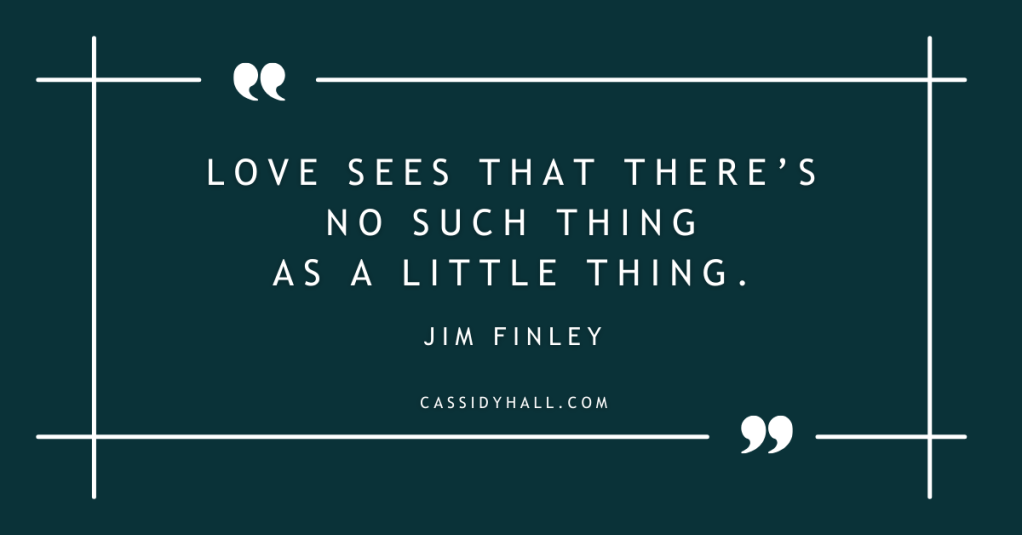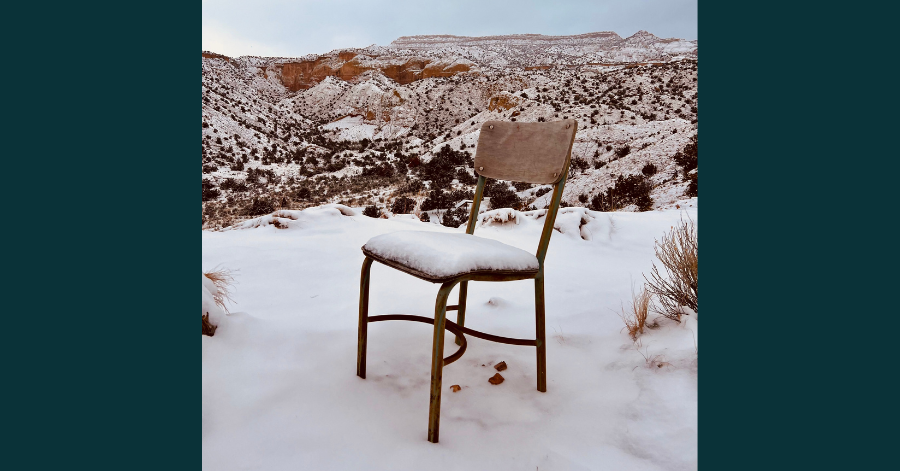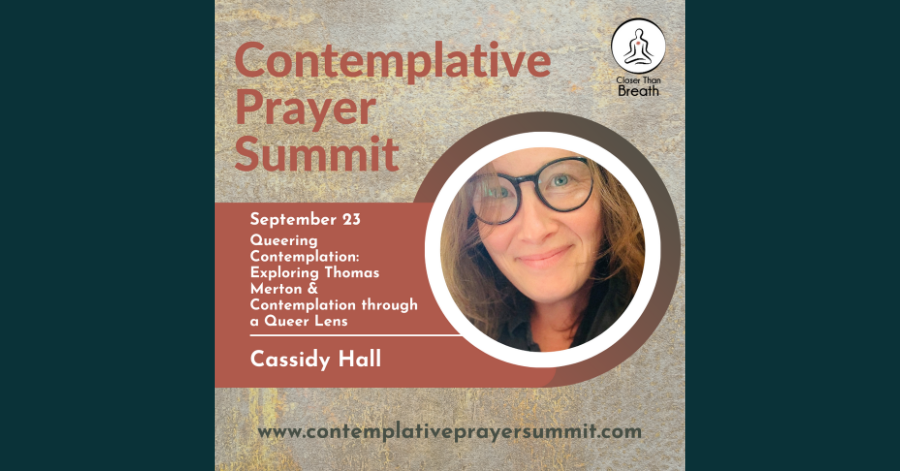Because New Melleray Abbey is the 2nd oldest Trappist Monastery (1849), stepping upon the grounds has a sense of sacredness that immediately induces reverence for the people and the place. The interior of the church is pleasingly textured in stone, which, while aesthetically pleasing, it also awakens various senses to texture, sound, aroma, etc. Upon my arrival to New Melleray, one of my traditional first stops is to ensure I place foot in the church, whether it be time for prayer or not. There is something about this church in particular that is both venerated and pacifying all within one step.
Coming to New Melleray has begun to feel like a homecoming of sorts – faces are more recognizable and interactions have deepened. Many asked how my journey is going and I’m able to respond in a way that is honest and humbling, which is ultimately the most helpful for any capacity of progression. What is it about the familiarity of a location that can seem so soothing, so comforting, so relaxing? And, more importantly, how can one prevent themselves from allowing that to form complacency, satisfaction, or a disregard for self development (ultimately self discovery)?
New Melleray has become a space that I long and hope to resemble in my own life; alongside my comfort in familiarity, I am challenged by engaging conversation, testing reading, overwhelming insight, and the frequently appealing (and terrifying) silence. The reason I desire to mimic such a space is because complacency has become far too easily appearing in my life and I have found it to be extraordinarily deceiving. Each moment in which I find myself satisfied with my amount of striving, seeking, or attentiveness, I know something is wrong – because, for me, to be a recipient of total self-satisfaction is contrary to the life I’d like to live.
Since I’ve been making an attempt to study the Desert Fathers and Mothers (Abbas and Ammas) of the 3rd and 4th centuries, this topic has continued to surface in conversations. These Abbas and Ammas would be asked by seeking pilgrims whom embody great desperation and longing, to be given a word. The tradition is for these seeking pilgrims to enter the desert and cry out to the Abbas and Ammas, ‘give me a word.’ Upon further conversation I was told that one of the responses (all of which tended to be short and potent and can be found in numerous readings on the sayings of the desert fathers and mothers) to a pilgrim coming to an Abba or Amma was “Flee forgetfulness.“ Or, “Flee the land of forgetfulness.” What in the world does that mean? To me, it means to not live oblivious, to let go of the unimportant in order to hold on to the significant. Personally, I’ve encountered this deception in numerous ways – from my false ideas of progress and accomplishment in daily tasks, and my misconceptions of success, to my visions of prosperity (whatever that really means). More directly, what am I really doing in life that has an eternal impact, or at the very least an impact in which will carry on upon this earth? In short, I’m fully aware that it is the love I give and receive: the relationships I truly engage in (and remain for the highs and lows), the encounters with those I may never see again, the small smiles and gestures that come from a place a genuine reverence and love. While this may be a complex way of describing the golden rule, in these Trappist monasteries there is another rule by which they follow – the rule of St. Benedict – in which it is stated, “…This, then, is the good zeal which monks must foster with fervent love: They should each try to be the first to show respect to the other (Rom 12:10), supporting with the greatest patience one another’s weaknesses of the body or behavior, and earnestly competing in obedience to one another. No one is to pursue what he judges better for himself, but instead, what he judges better for someone else…” (Rule of St. Benedict, Chapter 72. The Good Zeal of Monks).
I’m often overwhelmed by the vast knowledge and insights provided by my encounters, readings, and even the wisdom of silence. Luckily, it hasn’t created a chaotic experience but more of an easing into understanding. I’m not sure this would be possible without the silence, space, and freedom I feel amongst these locations and experiences. The monastic life is geared toward self-discovery, in the sense that it tends to awaken one’s true self. While there is nothing easy about the experience, and it doesn’t necessarily get any easier as the days go on, it is edifying. It’s as if each day brings me a little closer to my true self at which I’ll never arrive – for arrival is actually defeat, in that it imposes a false attainment or achievement. The only accomplishment is to continue day after day. The only satisfaction is to strive hour after hour. The most heightened of joys come from those seemingly small self-discoveries that lead me to better love and be loved by others.
__________________________________________________________________________________________________________________________________
From Tales of a Magic Monastery, by Theophane the Monk:
The Mountain of Decision
“How long have you been a monk?” I asked.
“A real monk? Not long. It took me fifty years to get up the Mountain of Decision.”
“Do you have to see first before you decide, or is it that you decide first and then you see?”
“If you’ll take my advice, “ he said, “you’ll drop the questions, and go right up the mountain.”
The Audacity of Humility
I walked up to an old, old monk and asked him, “What is the audacity of humility?” This man had never met me before, but do you know what his answer was? “To be the first to say ‘I love you.’”







Leave a comment